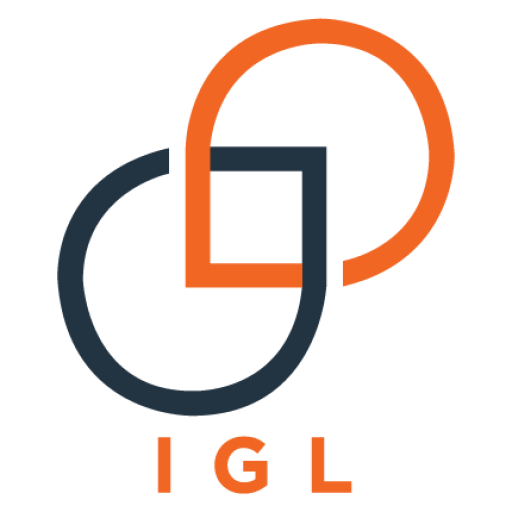
Intermediate-Level German Language Adjective Endings Explained
September 27, 2025
How Visa Consultants Help with Visa Extension Procedures
October 3, 2025Reflexive verbs are a crucial part of mastering the German language, especially as learners move beyond the basics and reach the intermediate stage. These verbs describe actions where the subject and the object are the same, meaning the action reflects back onto the person performing it. This concept is more prominent in German than in English, making it important for learners to understand reflexive verbs fully for effective communication. Whether you are attending a German language course in Karachi or learning online, grasping reflexive verbs is essential to deepen your fluency and comprehension.
What Are Reflexive Verbs?
Reflexive verbs in the German language involve the use of a reflexive pronoun that refers back to the subject acting. The reflexive pronoun, sich, is a unique part of German grammar and is used in combination with specific verbs to indicate that the action affects the subject itself. For example, the verb waschen means “to wash,” but when used reflexively, as in sich waschen, it means “to wash oneself.” This subtle difference is important because reflexive verbs express more nuance than non-reflexive verbs cannot capture independently. In English, reflexive verbs tend to be less frequent and often rely on reflexive pronouns like “myself” or “yourself,” However, in German, many verbs require reflexive naturally.
Reflexive Pronouns in German
In the German language, reflexive pronouns change depending on the grammatical case of the sentence: either accusative or dative. Knowing which case to use affects how you conjugate and place the reflexive pronoun. Below is a helpful chart for reference:
| Subject | Accusative | Dative |
| ich | mich | mir |
| du | dich | dir |
| er/sie/es | sich | sich |
| wir | uns | uns |
| ihr | euch | euch |
| sie/Sie | sich | sich |
The accusative case is typically used when the reflexive pronoun receives the direct action of the verb, while the dative is used when there is another direct object in the sentence and the reflexive pronoun functions more indirectly.
Accusative vs. Dative Reflexive Verbs
Understanding when to use the accusative or dative reflexive pronoun is vital for sentence clarity. Generally, if the verb acts directly on the subject, use the accusative reflexive pronoun. For example:
- Ich wasche mich. (I wash myself.)
However, if there is another object being affected in the sentence, the reflexive pronoun usually appears in the dative:
- Ich wasche mir die Hände. (I wash my hands.)
This distinction is often a challenge for German learners, but practicing these structures in sentences helps internalize the difference. Language courses in Karachi often emphasize this topic at the intermediate level to ensure mastery.
Common Reflexive Verbs in Everyday German
Reflexive verbs are part of many common phrases and daily activities in the German language. These verbs can categorize broadly into three groups:
- Daily routines: sich waschen (to wash oneself), sich anziehen (to get dressed), sich ausruhen (to rest)
- Emotional and mental states: sich freuen (to be happy), sich ärgern (to be annoyed), sich schämen (to be ashamed)
- Social interactions: sich treffen (to meet), sich unterhalten (to chat), sich verabreden (to make an appointment)
Familiarity with these verbs is often included in a German language course in Pakistan, tailored especially for learners advancing past beginner stages.
Word Order with Reflexive Verbs
In German, the position of reflexive pronouns depends on the sentence type. In main clauses, they typically follow immediately after the conjugated verb:
- Ich entscheide mich schnell. (I decide quickly.)
In questions and subordinate clauses, the reflexive pronoun often follows a different word order:
- Wann erinnerst du dich daran? (When do you remember that?)
- …, weil er sich nicht wohl fühlt. (…because he doesn’t feel well.)
Mastering these patterns of word order is essential for both writing and speaking fluently in the German language.
Separable Prefix Verbs with Reflexives
Many reflexive verbs in German have separable prefixes, where the prefix detaches and moves apart in certain sentence constructions. Examples include:
- sich anmelden (to register): Ich melde mich an. (I register myself.)
- sich vorstellen (to introduce oneself): Sie stellt sich vor. (She introduces herself.)
Understanding how separable verbs function with reflexives adds complexity that intermediate learners should carefully study, often provided in the curriculum of the best German language institute in Karachi.
Reflexive Verbs with Prepositions
Some reflexive verbs require specific prepositions to complete their meaning, which must not be omitted:
- sich freuen auf (to look forward to something)
- sich interessieren für (to be interested in something)
Example sentence:
- Ich interessiere mich für Kunst. (I am interested in art.)
Prepositions are vital because they determine the meaning and grammatical accuracy of reflexive verbs. This topic is a key focus in German language courses near me and in Karachi.
Common Mistakes to Avoid
Students learning reflexive verbs in the German language often make mistakes such as:
- Omitting reflexive pronouns where they are necessary.
- Confusing accusative and dative reflexive pronouns.
- Using reflexive pronouns unnecessarily when the verb is not reflexive.
These pitfalls can hinder progress, so learners are encouraged to practice regularly and seek guidance from a reputable language institute in Karachi to avoid such errors.
Practice Exercises for Learners
To enhance your understanding, consider exercises such as:
- Fill in the blanks with the correct reflexive pronoun.
- Translate English sentences using reflexive verbs into German.
- Practice short dialogues incorporating reflexive verbs in daily conversation contexts.
These exercises are often part of materials offered at the IGL German Language Institute, a leading option for anyone looking for the best German language course in Pakistan.
Conclusion
Reflexive verbs play a significant role in mastering the German language at an intermediate level. They require careful attention to reflexive pronouns, cases, word order, and verb types to use correctly. Whether you are searching for a “German language course near me” or a trusted language institute in Karachi, enrolling with IGL German Language Institute provides expert instruction and a supportive environment for mastering reflexive verbs and many other aspects of the German language. Begin your journey with IGL today and take your German skills to new heights.




